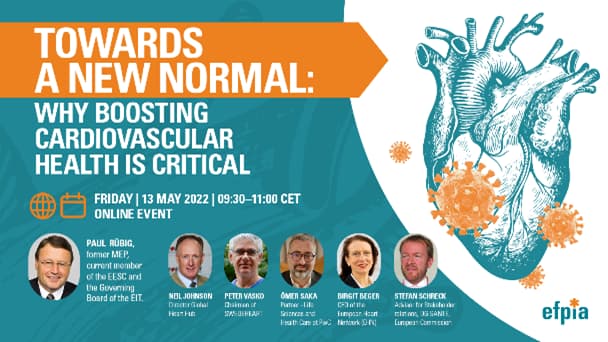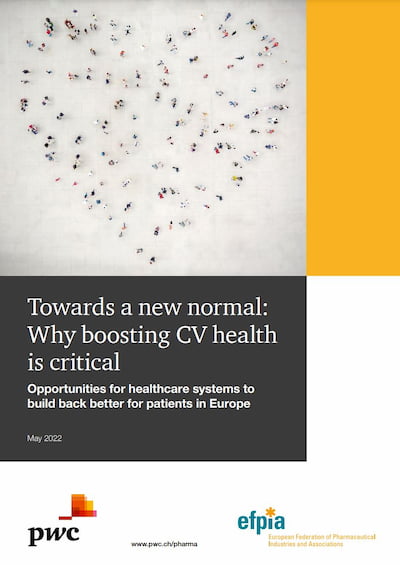A new report to boost cardiovascular health in Europe
It is time to shift from cardiovascular disease to cardiovascular health
A new report calls for screening, outcomes-based care, and data-driven decision making to boost cardiovascular health across Europe.
Cardiovascular disease (CVD) remains Europe’s number one killer, claiming on average 5,000 lives every day. CVDs, including heart attack, heart failure, and stroke, cause one-third of all premature, yet often preventable deaths. They can also have a profound impact on the quality of life of those affected and add to the burden on their families, communities, and health systems. Some of them come as a result of lifestyle choices. Other, however, are driven by independent risk factors which are inherited and genetic. Among them familial hypercholesterolaemia and elevated lipoprotein (a).
Since the outbreak of COVID-19, things got even worse. The pandemic exposed existing disparities in cardiovascular care across countries, systems, social groups and sex. Those include variation in the proportion of prevention, undetected CVDs, access to care, and the use of digital health tools to manage at-risk patients and drive better decisions.
More than two years after the COVID-19 pandemic started, healthcare systems are assessing its impact to strengthen their response and improve the health outcomes of patients across disease areas. In this context, the European Federation of Pharmaceutical Industries and Associations (EFPIA) CVD Network commissioned a report, in collaboration with PwC, to understand the impact of the pandemic on the sixty million CVD patients in Europe. FH Europe together with a number of other interdisciplinary experts had an opportunity to contributed to the report. highlighting the need to change the narrative on CVH, to move from the current paradigm (CVD as an effect of lifestyle) to a new innovative approach based on the inclusion of as many as possible determinants of cardiovascular health (CVH), and in particular the genetic and inherited factors.
The report offers a series of concrete recommendations designed to better position European health systems to cope with future crises. The first one calls for improved population screening, aligned very much with FH Europe’s mission. Implementation of universal, early (paediatric) screening programs combined with other screening models will help prevent the development of atherosclerosis in children and the reason for premature heart attack, stroke and death in children and young adults.
Key recommendations include:
- Strengthen population screening
- Broaden screening programmes for genetic and metabolic risk factors
- Simplify access to screening, especially for vulnerable populations
- Ensure treatment initiation, maintenance, and follow-up for at-risk patients
- Gear the system towards rewarding outcomes
- Strengthen digital health and information sharing
- Foster data-driven decision making
- Collect/leverage data to drive CVD insights, support clinical decision-making and value-based care delivery, and inform CVD policymaking
These conclusions, elaborated upon in the full report, call on all CVH stakeholders to play their part in advancing prevention, detection and care, by using the tools we have at our disposal. They put the spotlight on preventing ill-health (including early screening programs, secondary prevention for those who have already suffered a cardiovascular event), and smarter use of digital technologies. And they remind us that information is power: we must harness data to ensure citizens, patients, clinicians, and policymakers make informed decisions on how to effectively manage our most important asset – health.
The report was launched on Friday, May 13 during high a level event with an esteemed panel including Stefan Schreck, Advisor for Stakeholder relations, DG SANTE, European Commission, Paul Rübig, former MEP, current member of the European Economic and Social Committee (EESC) and the Governing Board of the European Institute of Innovation and Technology (EIT), Birgit Beger, CEO European Heart Network and representing the European Alliance for Cardiovascular Health and Neil Johnson, Founder and Director of the Global Heart Hub.

FH Europe is supported by an educational grant from Amgen Limited, Sanofi, Regeneron, Akcea Therapeutics Inc. and Amryt
Site by: Vovi Web Design


